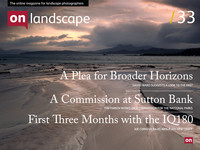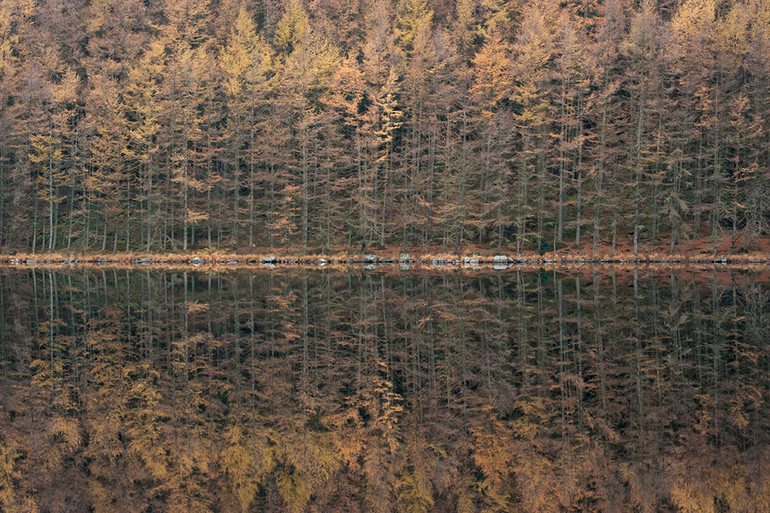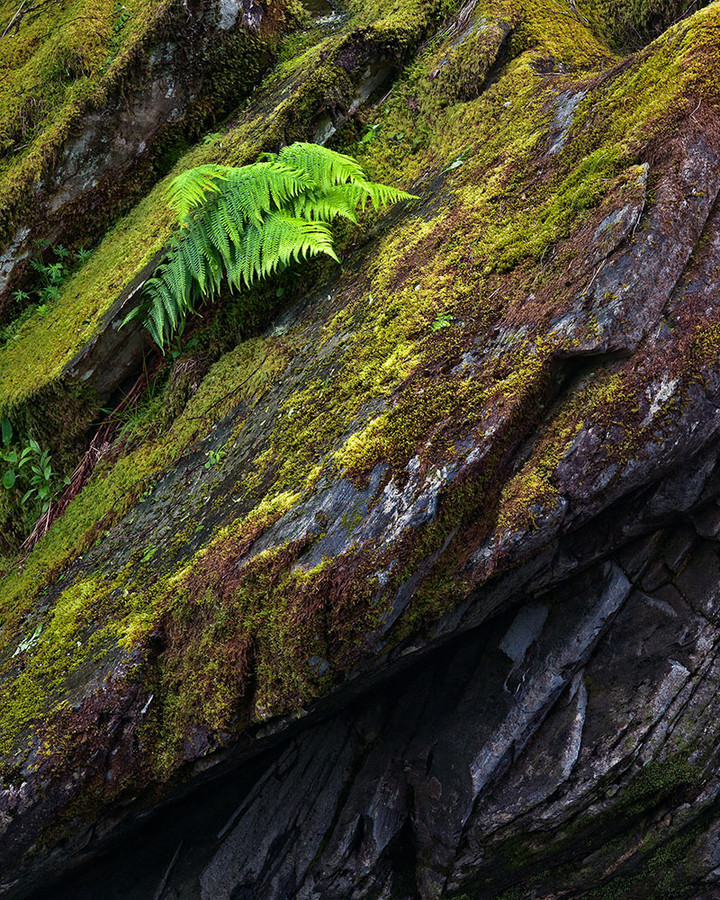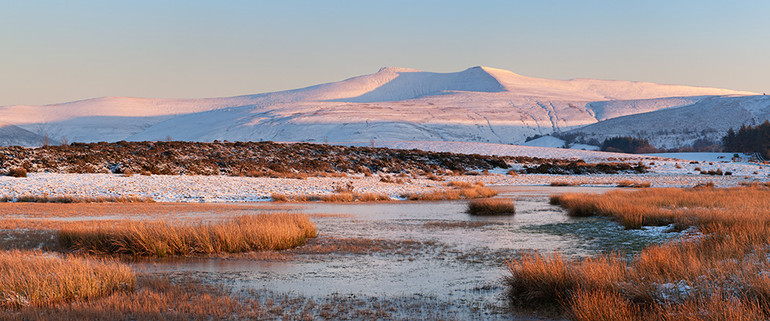Featured photographer

Tim Parkin
Amateur Photographer who plays with big cameras and film when in between digital photographs.

Chris Goddard
Chris Goddard is a keen amateur landscape photographer from south Wales. Between raising a family and a full time job he enjoys making images of Britain’s beautiful landscape. His website can be found at
This month we're featuring a photographer that previously offered some work as an image critique which we featured in issue 12. Chris Goddard is a ranger who works in South Wales but travels the country capturing some stunning imagery along the way.
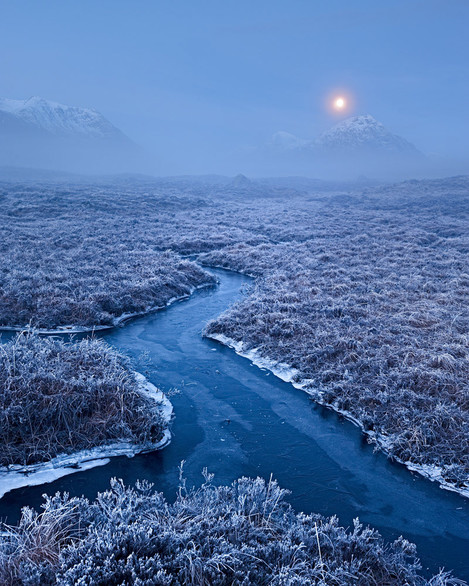 In most photographers lives there are 'epiphanic’ moments where things become clear, or new directions are formed. What were your two main moments and how did they change your photography?
In most photographers lives there are 'epiphanic’ moments where things become clear, or new directions are formed. What were your two main moments and how did they change your photography?
Where do I start? it seems like in the last four years of taking images there has been one epiphany after another (many small ones in succession you could say). I guess one of the main ones for me once I got over the usual technical problems like focusing, exposure and depth of field was an appreciation for the quality of light, that essential photographic ingredient. Epiphanies regarding light have also been many and since I had no formal training as a photographer I had to learn through trial and error, reading and looking. It seems strange now but for some time after I started taking images, I failed to see why certain images made with complimentary light really worked (composition aside). Of course, once I caught wind of this I started experimenting and using similar conditions for my own images. I started seeking shade and overcast conditions for close up studies and more direct, stronger forms of lighting for wider views. I generally avoid clear, sunny days and prefer to use this time looking for subject matter that will work in more favourable conditions. Having said this I like to remain open minded and I fully understand that it is important to be flexible at all times when out with a camera with the intention of making meaningful images. Other significant moments of clarity have happened whilst developing my skills later, at the computer with software like Adobe's Photoshop. For a long time I didn't want to go anywhere near Photoshop, as soon as I saw the program load I was baffled by all the menus and icons so, I used my camera's proprietry software for as long as I could. 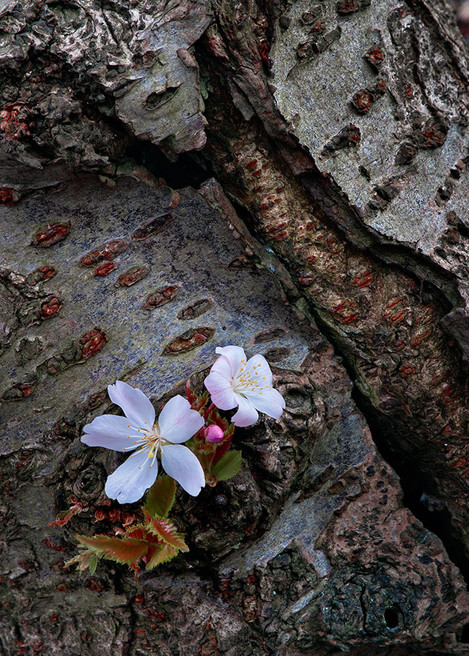 However, I needed more control and I decided to take the plunge and learn how to use Photoshop. Although I still have a long way to go I no longer find myself having a panic attack when I click to open it. I can use a layer or two to balance the light in an image or make a localised adjustment to the colour, affect the brightness and darkness and generally have a reasonable level of understanding of what the right tools are for most common problems. These skills are important to me, they influence my decisions about what is possible whilst in the field with my camera and help me to produce an image that is close to how I felt at the time of making it (a process that gets better with time).
However, I needed more control and I decided to take the plunge and learn how to use Photoshop. Although I still have a long way to go I no longer find myself having a panic attack when I click to open it. I can use a layer or two to balance the light in an image or make a localised adjustment to the colour, affect the brightness and darkness and generally have a reasonable level of understanding of what the right tools are for most common problems. These skills are important to me, they influence my decisions about what is possible whilst in the field with my camera and help me to produce an image that is close to how I felt at the time of making it (a process that gets better with time).
Tell me about why you love landscape photography? A little background on what your first passions were, what you studied and what job you ended up doing.
I grew up on a farm in south east Wales, I studied Environmental Science at university and did lots of voluntary work for the Wildlife Trust after university. My reasons for picking up a camera in the first place was so I could record and identify all the plants, insects and fungi I came across whilst out in the countryside. I became a little obsessed with insects and flowers so I bought a macro lens and lots of i.d. books and charts. Spending time outdoors is something I have always loved doing and the realisation soon came that I can use much of this time to photograph the landscape itself, not just the wildlife within it. With lots of help, encouragement and inspiration from a good friend in Oxfordshire, I started travelling the country, visiting remote areas of natural beauty and discovering wilderness Britain (if there is such a thing left in this country?). I have been a ranger for the last three years for my local council and my working hours are such that every five weeks I get four days off in succession so, I usually dedicate this to photography.
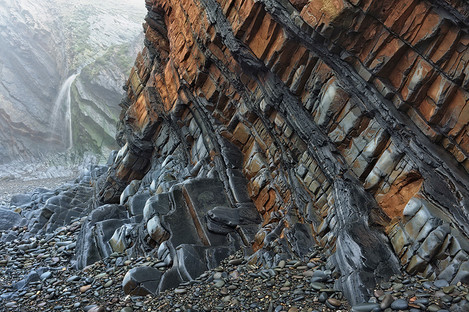 Could you tell us a little about the cameras and lenses you typically take on a trip and how they affect your photography
Could you tell us a little about the cameras and lenses you typically take on a trip and how they affect your photography
I've been using a Nikon D700 for just over 2 years and before that I used a D200. I almost always carry three lenses, a Nikkor 17-35, a Sigma 24-70 and a Sigma 100-300. I also have a custom made panoramic head set up which uses Archa Swiss style rails and clamps which I use for all my stitching. The panoramic head has had the biggest influence on the way I work. With this I realised that I no longer need to make a single frame and crop it, it became possible for me to make any sized image by stitching them together. I found this process beneficial in a couple of ways. 1 - It takes a while to set up so it slows me down making me more considerate when it comes to composition and 2 - the files are larger so I have a few more pixels when it comes to printing. I'm really looking forward to the prospect of using the same methods with the next generation of dSLR's. I know I will be able to create images closer in size to that of larger formats (something until relatively recently was just a dream).
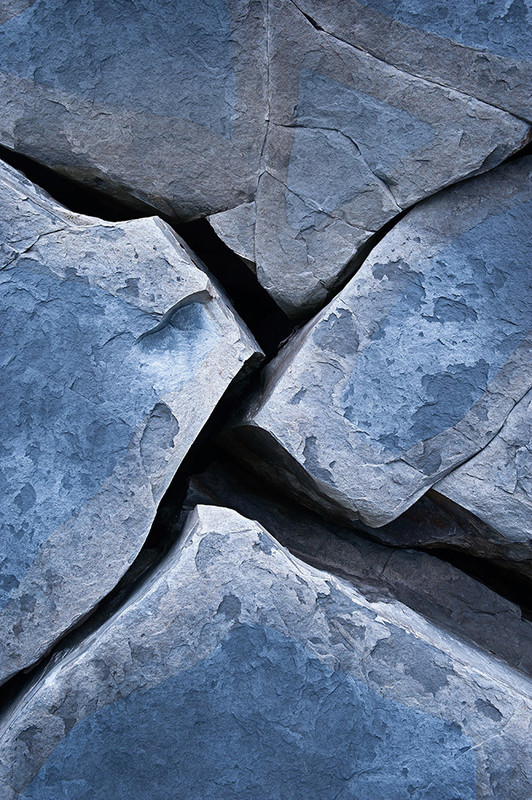 What sort of post processing do you undertake on your pictures? Give me an idea of your workflow..
What sort of post processing do you undertake on your pictures? Give me an idea of your workflow..
As mentioned above I now do most, if not all of my editing with Photoshop. I often flick through my images for review using Bridge and select images that I like and are without flaws for editing (deleting ones that are flawed). Before any serious time is spent on an image I usually do a quick edit using Adobe Camera Raw (ACR), being quit aggressive with the sliders to get a feel for what is possible and with the knowledge that all these settings will be cancelled. If I feel there is something worth pursuing I will reset ACR back to its default so the image at this stage looks very flat. The only things I like to get right at this point are the white balance and exposure, the rest of the sliders I usually leave as they are. If I have a focus stack I will be sure to apply the exact same settings to all files in the set and the same goes for a pano stitch. I then open the file in Photoshop, with some idea what I want achieve with the image (from my quick edit mentioned earlier). I use tools like levels, curves, layers and masks to accomplish this. I also make use of selections for images that need to be blended if it was not possible to capture all the necessary information using a single file (i.e. one exposure for the highlight information and another for the shadows). For focus stacking I use auto-align and auto-blend in Photoshop and for panoramics I use PTGui.
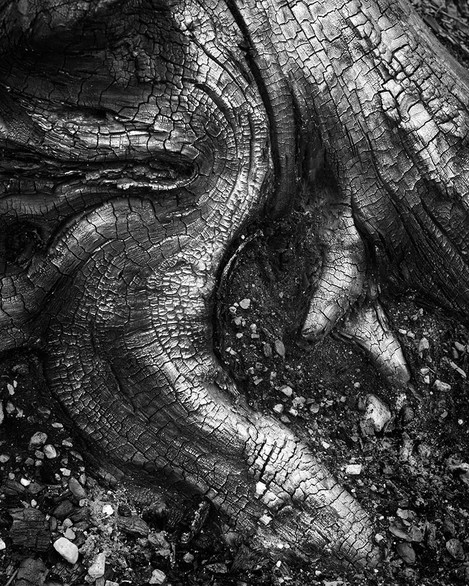 Tell me about the photographers that inspire you most. What books stimulated your interest in photography and who drove you forward, directly or indirectly, as you developed?
Tell me about the photographers that inspire you most. What books stimulated your interest in photography and who drove you forward, directly or indirectly, as you developed?
There are lots of photographers that inspire me on many levels and for many different reasons - Bruce Barnbaum for his skill and knowledge and who has produced the most striking images of America's southwest that I know of, Eliot Porter for his passion for nature and his simple studies of flowers and trees to his wider, almost abstract views of some of the most beautiful places on earth. Joe Cornish with his flawless use of colour and composition and David Ward who's abstract work never ceases to amaze me. I should also say many in my friends and contact list on the website Flickr have been a constant source of inspiration. I've found they are always willing to help with honest feedback and advice, such a great community.
Tell me what your favourite two or three photographs are and a little bit about them.
I find my feelings often change about an image over time. If I put a lot of effort into an image I might find, initially that i'm quite excited by it however, given enough time to allow it to sink in I find it can sometimes lose its appeal. Other images can be very quiet and it may take a while for those subtleties to sink in, these on the other hand often have lasting appeal and become favourites, this is an example of one such image.
GLEN ORCHY FERN
This image for me is a favourite and made in one of those fortuitous moments after sometime of wondering and not being able to find an image worth taking. This ended up being the one image that I feel most summed up my experience in the wonderful Glen Orchy in Scotland, and it's just some moss, rock and a solitary fern.
PEN Y FAN
This is an example of an image I made after some serious planning and many failed attempts. Ideas started coming together with repeat visits to the area, building a familiarity with the local landscape and how the light played across it and then, about two years after my first visit the conditions and light finally came together and I made this pano, one of my favourite images of Pen Y Fan.
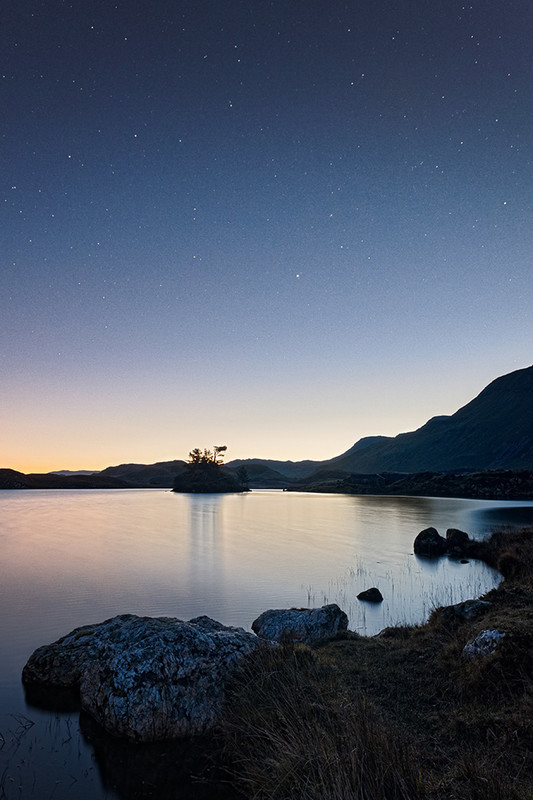 If you were told you couldn’t do anything art/photography related for a week, what would you end up doing (i.e. Do you have a hobby other than photography..)
If you were told you couldn’t do anything art/photography related for a week, what would you end up doing (i.e. Do you have a hobby other than photography..)
I would be spending this week with my wife and son, almost certainly outdoors visiting a beach or nature reserve. Apart from that it's not uncommon for me to be found sieving through the records and cd's of independent music stores or looking through the dusty shelves of used book shop.
What sorts of things do you think might challenge you in the future or do you have any photographs or styles that you want to investigate? Where do you see your photography going in terms of subject and style?
One of the biggest challenges for me is the business and marketing side of photography. I'm realising that this is at least half the battle and something I must get to grips with if my main ambition of making my photography pay for itself is going to be accomplished. I wouldn't like to restrict myself by pursuing any specific style, I hope to continue to be inspired by nature and the photographers I mentioned earlier and build my own portfolio. I find the skills I use whilst photographing the landscape are transferrable to other types of photography and architecture is certainly something I would like to do more of in the future.
Who do you think we should feature as our next photographer?
I would be interested to see Anna Booth featured here sometime. Thanks Tim.
Many thanks for Chris - if you want to see more of his photography you can look on flickr or 500px.

